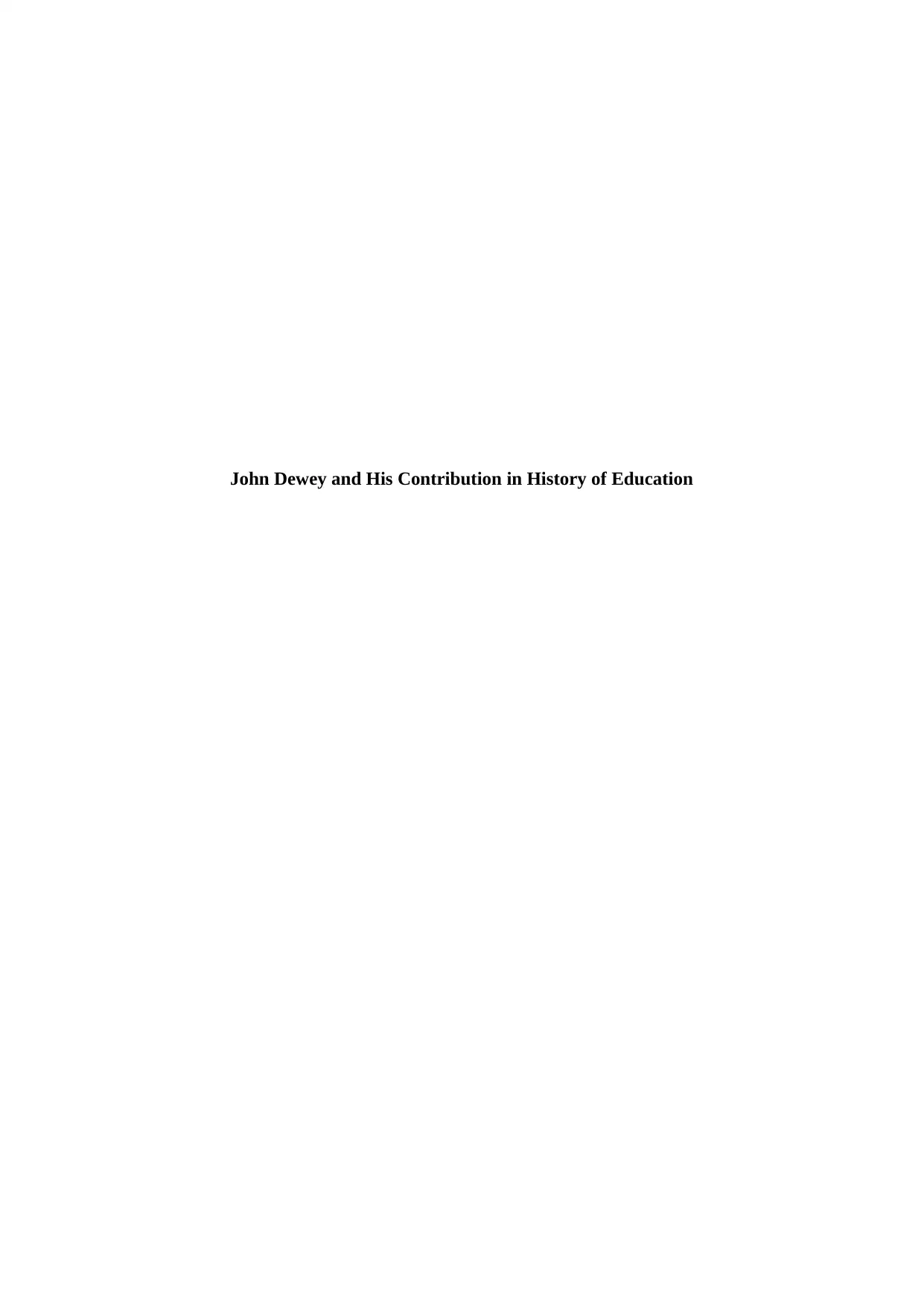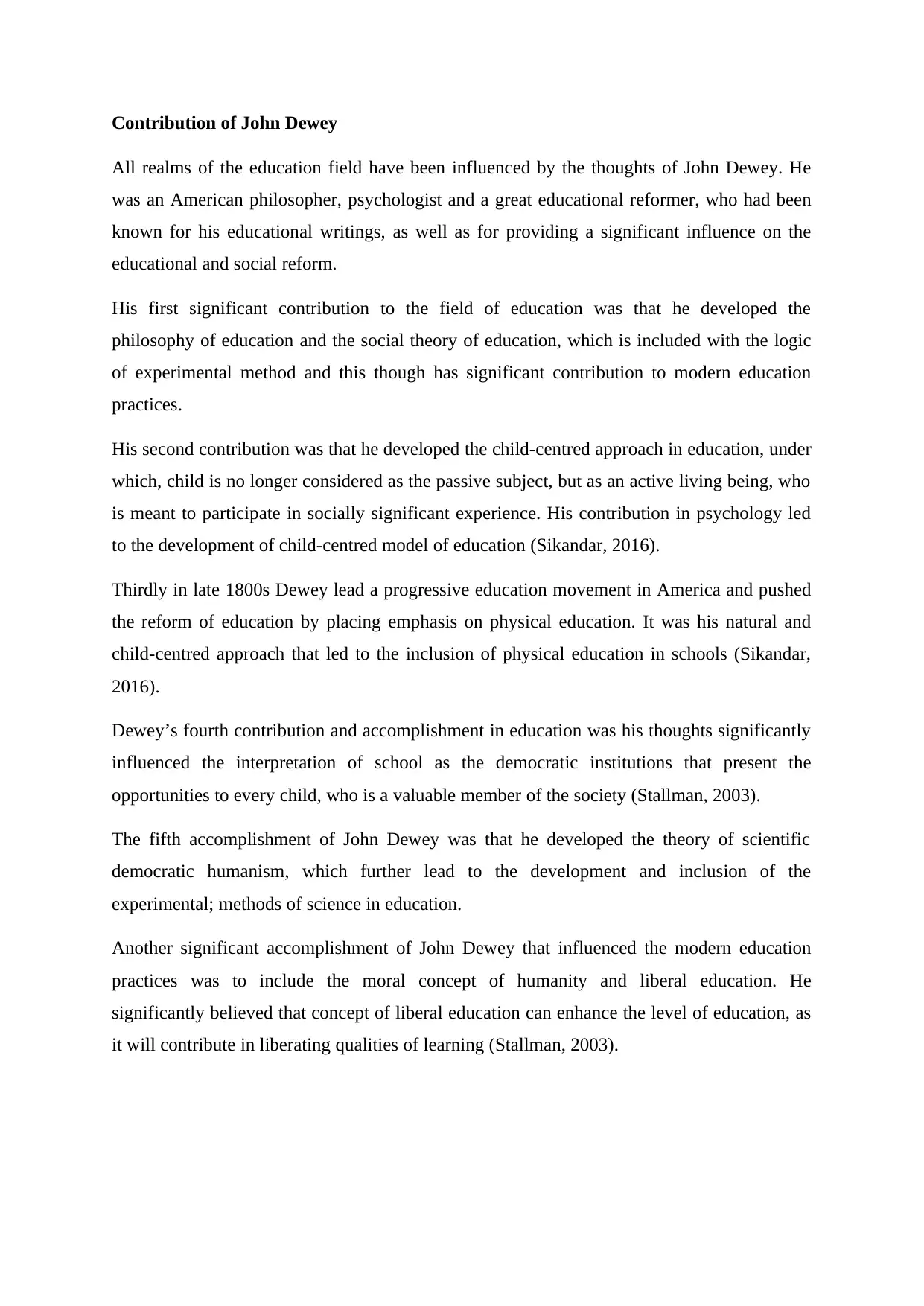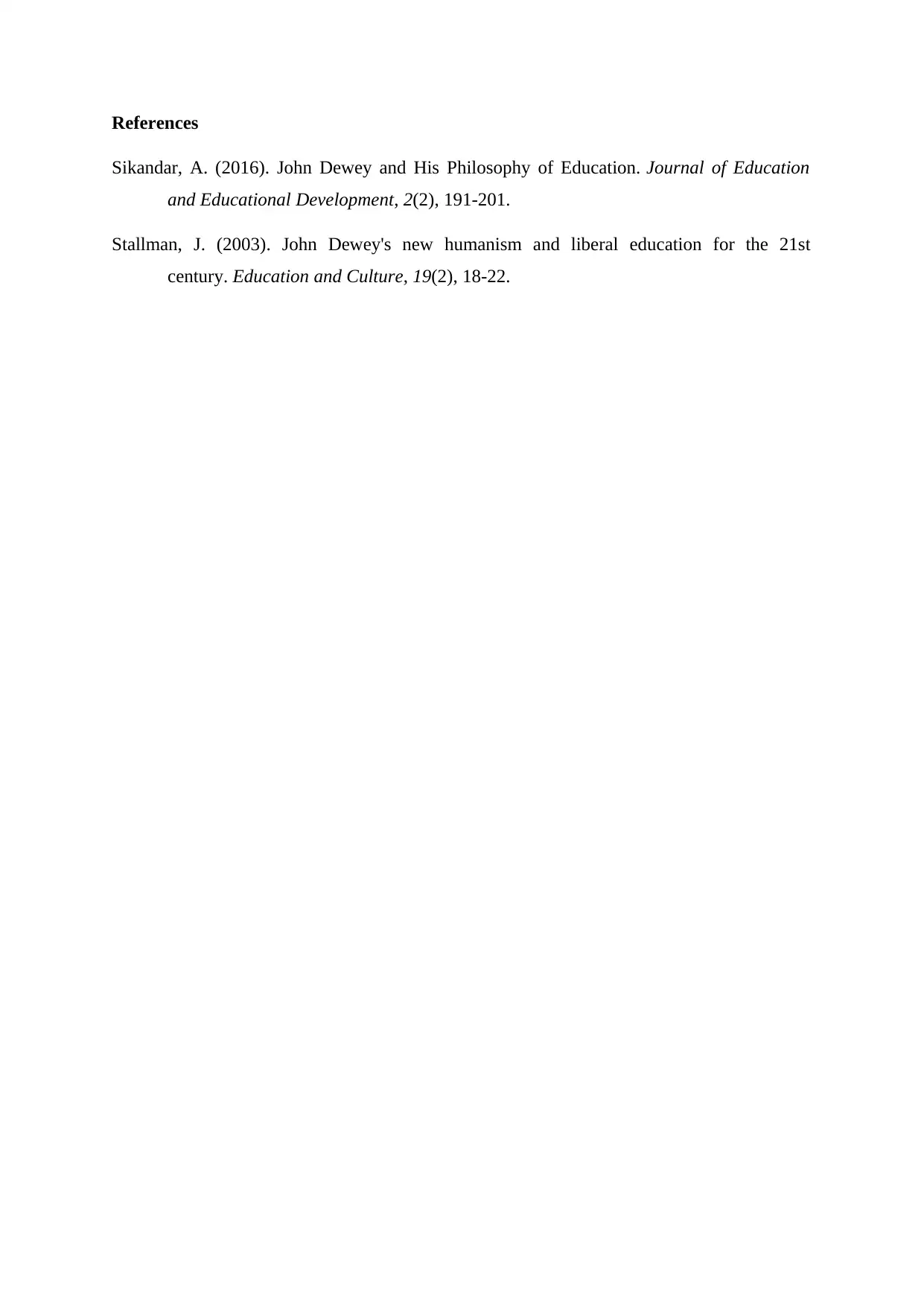Exploring John Dewey's Contribution to the History of Education
VerifiedAdded on 2023/04/26
|3
|416
|85
Essay
AI Summary
This essay discusses John Dewey's significant contributions to the field of education, highlighting his development of educational philosophy, the child-centered approach, leadership in the progressive education movement, influence on interpreting schools as democratic institutions, and the development of scientific democratic humanism. Dewey's emphasis on experimental methods, moral concepts of humanity, and liberal education significantly influenced modern education practices, contributing to a more holistic and liberating learning environment. The essay references specific works to support its analysis of Dewey's impact on education.
1 out of 3






![[object Object]](/_next/static/media/star-bottom.7253800d.svg)